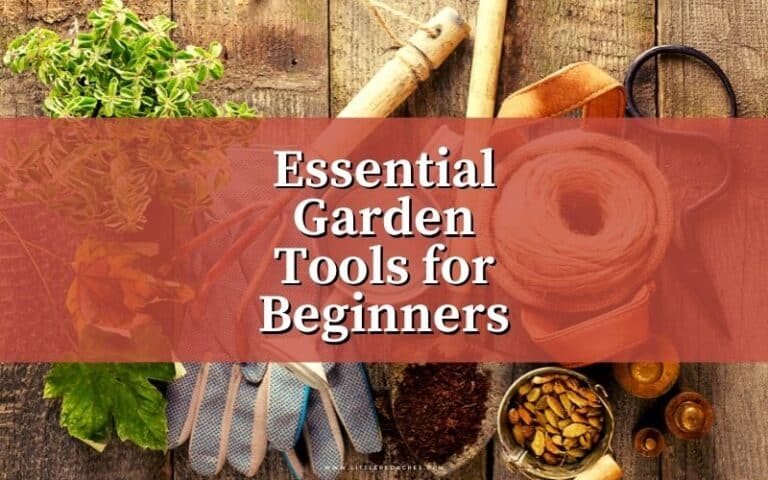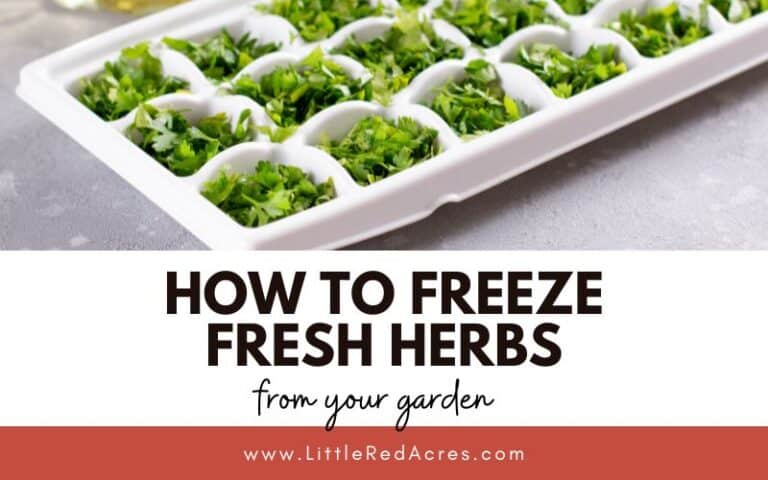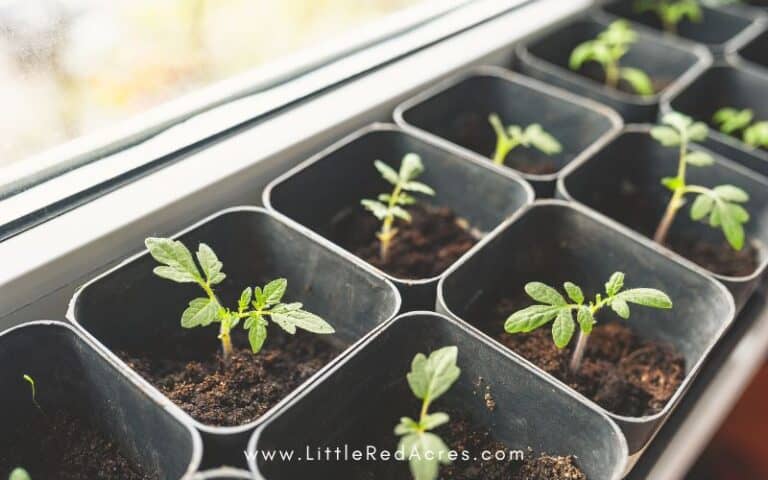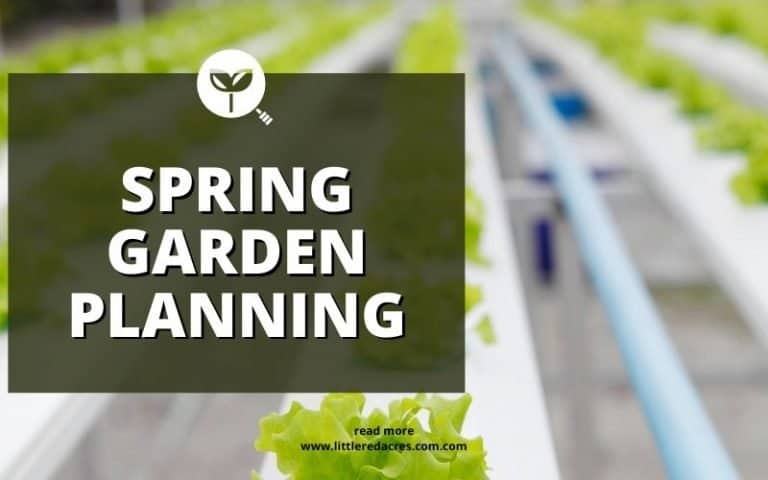How & When to Plant A Winter Garden
Inside: Learn to embrace winter gardening for fresh produce in the cold. Easy and rewarding, enjoy greens despite chilly weather. Plant a winter garden to continue your garden all year long.
Winter is often a time when many people aren't thinking about gardening due to the cold weather. Try instead to plant a winter garden, it's a great way to enjoy fresh produce during the colder months. Winter gardening is not only possible but also easy and rewarding.
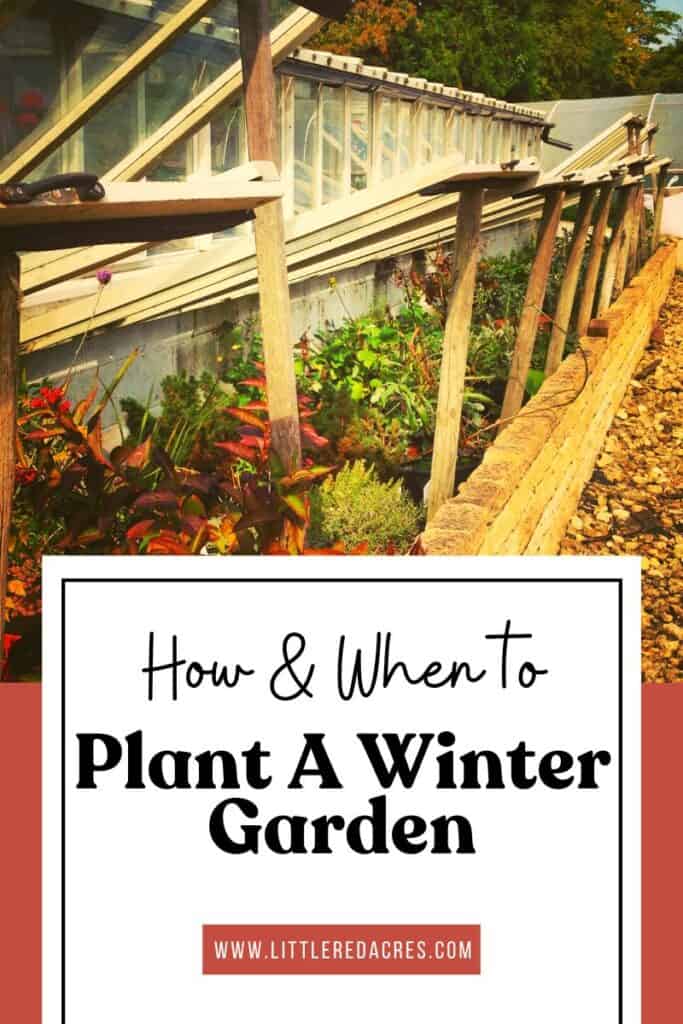
This post may contain affiliate links, see my disclosure policy for more information.
How & When to Plant A Winter Garden
To start a winter garden, it's important to plan ahead. Know what and where you are going to plan your winter garden.
It is important to choose the right plants that can survive cold temperatures. Some of the best plants for a winter garden include kale, spinach, lettuce, and carrots. These plants are hardy and can withstand frost and snow.
Winter gardening can also be done in containers, making it a great option for those with limited space. Containers can be moved indoors during extreme weather conditions to protect the plants.
Preparing Your Beds for Garden Winter
Soil Preparation
Before planting a winter garden, it is essential to prepare the soil. The first step is to remove any remaining summer crops and weeds.
After clearing the garden bed, it's time to add organic matter to the soil. Compost, manure, and leaf mold are all excellent choices. These materials will improve the soil structure, add nutrients, and increase water-holding capacity.
Adding compost and other organic materials to the soil can improve its quality and help retain moisture. This can lead to healthier plants and a more bountiful harvest. Just remember to think about hot and cold compost/manure when adding it to your garden beds.
After adding organic matter, turn the soil. This will help to mix the organic matter into the soil and improve aeration. If the soil is compacted, it may be necessary to use a garden fork to loosen it before turning. If you are growing root vegetables like carrots you really want to make sure your soil is loose.
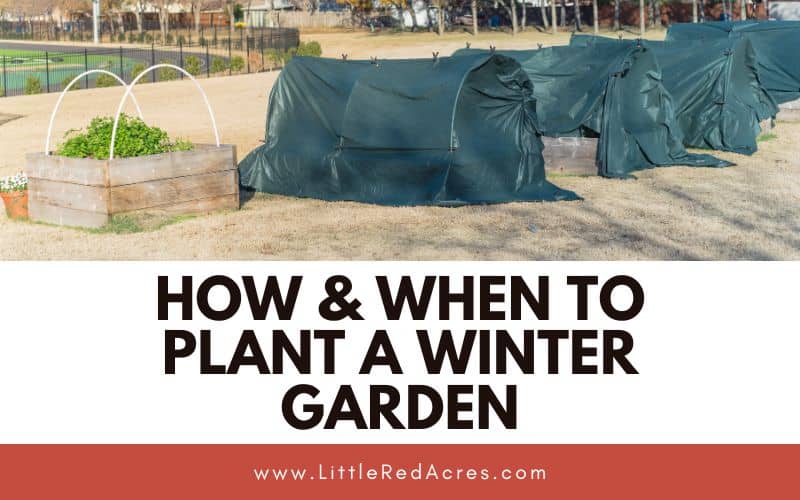
Seed Sowing Tips
When sowing seeds for a winter garden, it's important to choose the right varieties. Some vegetables, like kale and spinach, are cold-tolerant and can thrive in winter weather. Other vegetables, like tomatoes and peppers, are not suitable for winter gardening.
It's also important to time the planting correctly. In general, seeds should be sown 6-8 weeks before the first expected frost. This will give the plants enough time to grow and mature before the cold weather sets in.
When sowing seeds, it's important to follow the instructions on the seed packet. It's important to plant the seeds at the correct depth and spacing.
You might need to start your seeds in containers in order to get them started early enough, 6-8 weeks before the first frost. I do. I have carrots and beets currently started in smallish pots so I can transplant them after my greenhouse is cleaned out from the summer growth.
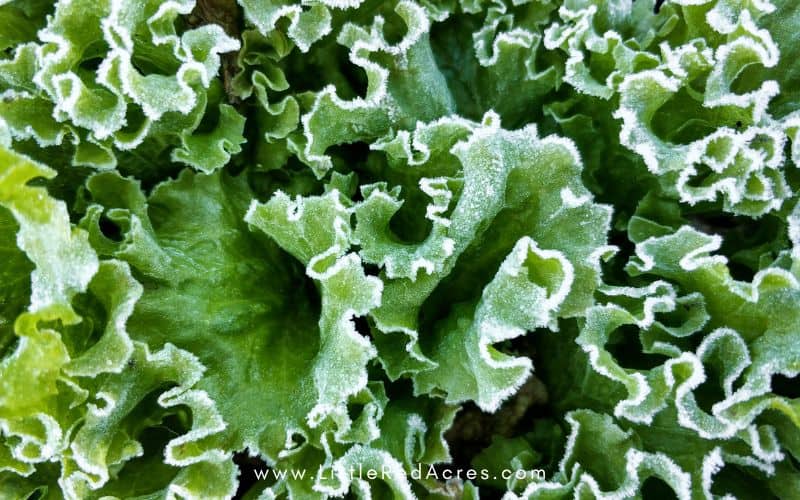
By following these tips, you can enjoy fresh vegetables throughout the winter months.
A winter garden can be a rewarding and enjoyable experience for any gardener. With the right preparation and planning, it is possible to grow a variety of vegetables and herbs even in the coldest months of the year.
Overall, planting a winter garden requires patience and attention to detail. However, with the right knowledge and techniques, it is possible to enjoy fresh produce even when the weather is cold and dreary.
Frequently Asked Questions
What is the best soil for winter gardening? In my experience, the best soil for winter sowing is either a good quality general-purpose potting soil, or a seed starting mix. You want something that isn't going to compact through the winter months.
Can I grow a winter garden in my greenhouse? As long as you can keep your greenhouse from dropping below temperatures where the plants you're growing are hardy, you'll be able to enjoy fresh vegetables long after the same crops would stop producing if they were growing outdoors without protection from the elements.
What is the best vegetables to grow in winter?
- Broccoli.
- Cabbage.
- Carrot.
- Cauliflowers.
- Endive.
- Kohl Rabi.
- Leek.
- Lettuce.

Want More?
Gardening Projects To Get You Through Winter
7 Ways to Prepare Your Garden This Spring


